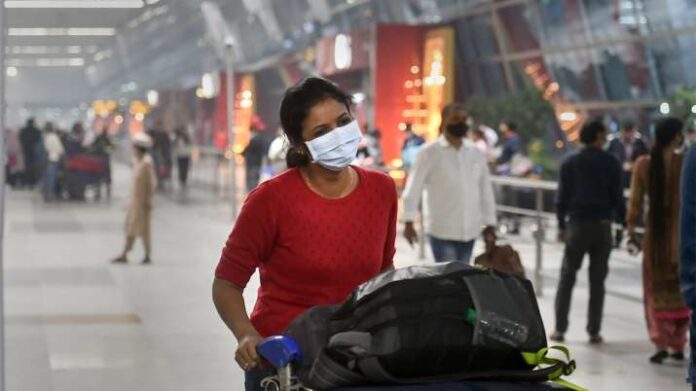The Centre has asked states to conduct rigorous screening and testing of all international travellers coming from and transiting through Botswana, South Africa and Hong Kong. This comes after a new coronavirus variant was detected in South Africa that scientists say is a concern because of its high number of mutations and rapid spread among young people in Gauteng, the country’s most populous province.The Centre has asked states to closely track and test the contacts of international travellers.While South Africa has reported six cases, Botswana has detected three cases of the new variant. One person was found to be infected in Hong Kong. The new variant has been identified as B.1.1.529.“lt is therefore imperative that all international travellers travelling from and transiting through these countries (they are part of the “at risk” country category of international travellers coming to India) and also including all other “at risk” countries located in the revised guidelines for international arrivals issued by this ministry dated 11.11.2021, are subjected to rigorous screening and testing, as per Health Ministry guidelines,” Health Secretary Rajesh Bhushan said in a letter to all states and UTs on Thursday.The Health Secretary also urged the states to ensure that samples of travellers turning positive are sent to INSACOG genome sequencing laboratories promptly as per the Ministry guidelines.Besides, the state surveillance officers have also been asked to establish close coordination with their designated or tagged genome sequencing labs for expediting results of genomic analysis, to ensure necessary public health measures may be undertaken by the states and UTs in case presence of variants of concern is reported.Dramatic rise in new infections in AfricaThe coronavirus evolves as it spreads and many new variants, including those with worrying mutations, often just die out. Scientists monitor for possible changes that could be more transmissible or deadly, but sorting out whether new variants will have a public health impact can take time.South Africa has seen a dramatic rise in new infections. Over the last four or five days, there has been more of an exponential rise. The new variant appears to be driving the spike in cases in the country. After a period of relatively low transmission in which South Africa recorded just over 200 new confirmed cases per day, in the past week the daily new cases rapidly increased to more than 1,200 on Wednesday. On Thursday they jumped to 2,465. The first surge was in Pretoria and the surrounding Tshwane metropolitan area and appeared to be cluster outbreaks from student gatherings at universities in the area.Scientists in South Africa are working to determine what percentage of the new cases have been caused by the new variant.Vaccination rates low in AfricaThe South African government had warned that a new resurgence was expected from mid-December to early January and had hoped to prepare for that by getting many more people vaccinated. About 41 per cent of South Africa’s adults have been vaccinated and the number of shots being given per day is relatively low, at less than 1,30,000, significantly below the government’s target of 3,00,000 per day. South Africa currently has about 16.5 million doses of vaccines, by Pfizer and Johnson & Johnson, in the country and is expecting delivery of about 2.5 million more in the next week.Meanwhile, the World Health Organisation’s technical working group will meet on Friday to assess the new variant and may decide whether or not to give it a name from the Greek alphabet.In another related development, the British government has announced that it was banning flights
ABOUT US
Sach News® - raising the voice of people of Jammu Kashmir since 1940. We are Publishing House of Daily Sach (Urdu Daily). Sach News, is one of the Oldest News Group of India having its office in Jammu Kashmir, Delhi. Reach us for Latest news on politics, sports, crime, education, real estate, business entertainment and much more. We provide you with the latest breaking news and videos straight from the ground zero.
Contact us: [email protected]
© Sach News Network 2011-2024 | Maintained by Sach Info Tech


